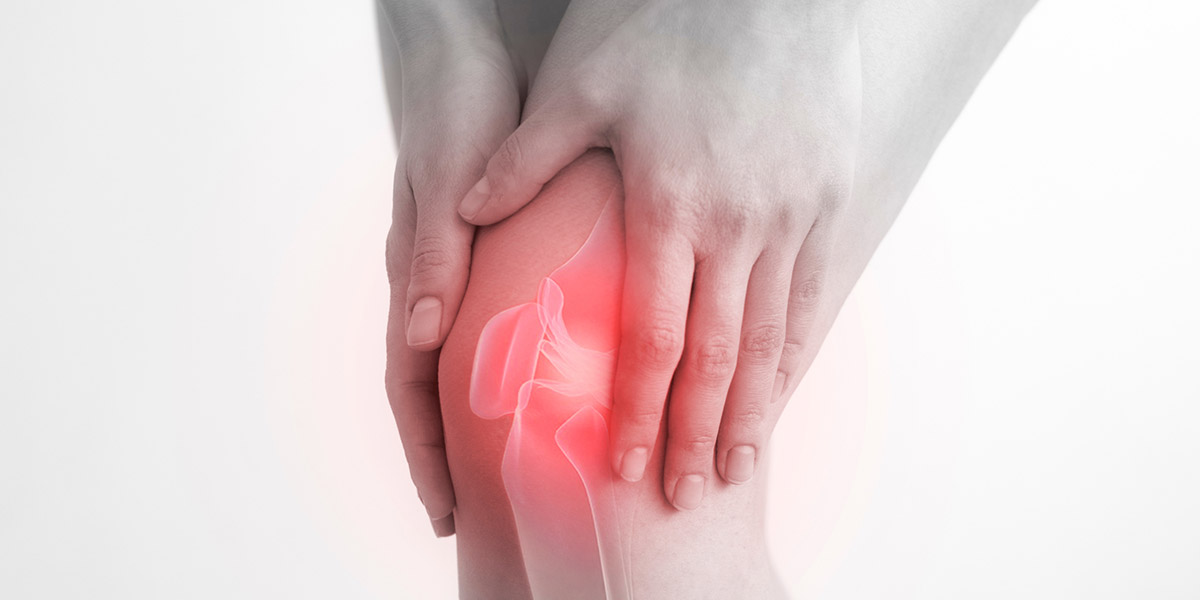
8 Common Signs of an Omega-3 Deficiency
Omega-3 fatty acids are anti-inflammatory fatty acids that support the normal functioning of your cells and tissues. They have many health benefits for the human body. They help protect your brain, mental health, joints, muscles, immune system, blood vessels, and heart health.
Since omega-3 fatty acids are important for so many areas of your heart, omega-3 deficiency symptoms can be widespread. Reducing omega-3 deficiency symptoms by eating fatty fish and other foods rich in omega-3s and taking omega-3 fish or algae oils supplements is critical for protecting your health long-term.
But how do you know if you’re getting enough of these essential fats? Let’s look at the top 8 common signs of omega-3 deficiency.
Introduction to Omega-3s
Before we get into the top omega-3 deficiency symptoms, let’s learn more about omega-3 essential fatty acids, their types, and their sources.
What Are Omega-3 Fatty Acids?
Omega-3 fatty acids are essential polyunsaturated fats. Omega-3 fatty acids are anti-inflammatory fatty acids that help to regulate inflammation levels and reduce chronic inflammation. They support brain function, heart health, blood vessel function, triglyceride levels, joint health, muscle strength, mental health, and other areas of your health (1, 2, 3, 4, 5, 6, 7).
Types of Omega-3 Fatty Acids
There are three main types of omega-3 fatty acids. They include alpha-linolenic acid (ALA), docosahexaenoic acid (DHA), and eicosapentaenoic acid (EPA). Let’s look at these different types of omega-3 fatty acids and their sources.
- ALA: This is the most common dietary source of omega-3s, however, it is not the most effective one. ALA is a form that comes from plant sources, including chia seeds, flaxseeds hemp seeds, walnuts, soy, and some plant oils. Your body is able to convert ALA into biologically active forms of omega-3, EPA and DHA. However, the problem is that this conversion is not very effective and you won’t get as much DHA and EPA as you would if you went straight to DHA and EPA sources (8, 9).
- DHA: DHA is a type of omega-3 fatty acid that comes from various animal sources, including oily fish, meat, eggs, and dairy. It can also be found in algae sources as a plant-based source of DHA. DHA is essential for your brain health, your retina, and other important areas of your health and well-being (10).
- EPA: EPA can be found in fish and algae sources. EPA is critical for keeping inflammation levels low, protecting your heart health, and supporting your digestive health, and other areas of your well-being. (11).
Importance Of Obtaining Omega-3s Through Diet Or Supplements
Omega-3 polyunsaturated fatty acids are critical for your health and well-being. Low levels can lead to a long list of omega-3 deficiency symptoms. Unfortunately, your body cannot make omega-3s, which means that you have to get them through a balanced diet and supplementation.
The best dietary sources of omega-3s, particularly DHA and EPA, are fatty fish and algae. However, considering all the environmental toxins, emotional stress, and inflammatory food we encounter daily, most people don’t get enough omega-3s through diet to counteract all this inflammation and protect their health.
To reduce chronic inflammation, decrease omega-3 deficiency symptoms, and support your brain, mental, heart, and joint health, we recommend that you also consider omega-3 dietary supplements. Fish oil supplements are your best option, however, if you are looking for a vegan or vegetarian source, algae oil supplements are another great way to meet your DHA and EPA needs.
Physical Symptoms of Omega-3 Deficiency

Physical health issues are among the top and most noticeable omega-3 deficiency symptoms. They can affect your skin, hair, joints, and muscles.
Dry Skin and Brittle Hair
Omega-3 fatty acids are essential for keeping inflammation levels low, maintaining hydration, and supporting the health of your skin and hair. If you have low omega-3 fatty acid levels, your body will have difficulty retaining moisture and repairing damage. This can lead to dry, flaky skin, eczema, other skin issues, dandruff, and brittle hair.
Using omega-3 supplementation may help with these omega-3 deficiency symptoms. According to a 2020 review published in the Journal of Cutaneous Medicine and Surgery, omega-3 supplementation may be beneficial for improving inflammatory skin problems, including atopic dermatitis, psoriasis, acne, and skin ulcers (12). A 2015 study published in the Journal of Cosmetic Dermatology has found that omega-3s may help to improve hair density and reduce hair loss (13).
Joint and Muscle Pain
Omega-3 fatty acids offer natural anti-inflammatory properties, which help to keep both inflammation and pain levels low. By reducing inflammation, omega-3 fatty acids may help to promote recovery after exercise and injuries. They can help to improve the cushioning of your joints, reduce joint pain and stiffness, improve muscle function, and decrease muscle soreness.
This may be great news if you have joint issues, such as arthritis, experience chronic health issues that cause muscle pain, such as fibromyalgia or rheumatoid arthritis, or exercise a lot, risking muscle or joint-related wear and tear and injuries. A 2023 study published in the Journal of Orthopaedic Surgery and Research has found that omega-3s may help to reduce joint pain and improve joint function in osteoarthritis (14).
A 2021 study published in the Journal of the International Society of Sports Medicine has found that omega-3 supplementation may reduce exercise-related muscle soreness (15). According to a 2024 clinical trial published in Current Rheumatology Reviews, omega-3 fatty acids used in high dosages may also help to reduce fibromyalgia pain by altering magnesium and calcium levels (16).
Cognitive and Mental Health Effects
Cognitive and mental health effects are also among the main omega-3 deficiency symptoms.
Mood Swings, Anxiety, and Depression
Omega-3 fatty acids are critical for your brain health and mental well-being. Omega-3 deficiencies may lead to problems with neurotransmitter function. This can disrupt emotional regulation and increase feelings of anxiety, depression, and other mood-related issues, potentially causing mental health disorders.
Omega-3 fatty acids are an important tool in nutritional psychology to support your brain’s ability to manage stress and balance mood. According to a 2018 study published in the JAMA Network, omega-3 may help to improve anxiety (18). According to a 2023 study published in the Journal of Personalized Medicine, omega-3 may also help to alleviate depression (19).
Brain Fog and Trouble Concentration
Omega-3 fatty acids are essential for maintaining proper brain cell structure and function. This is necessary for you to think clearly, be able to focus on your task and remember what you need to do. Omega-3 deficiencies can disrupt the communication between neurons, which can lead to mental sluggishness, brain fog, trouble concentrating, and memory issues.
Supplementation may help with the omega-3 deficiency symptoms. According to a 2022 review published in Cureus, omega-3 supplementation may help to improve blood flow in the brain, and, as a result, memory, learning, and overall cognitive well-being (20). A 2023 meta-analysis published in The American Journal of Clinical Nutrition has found that omega-3 supplementation may help to reduce the risk of cognitive decline and dementia (21).
Immune System Weakness
Among the several omega-3 deficiency symptoms, you may also notice immune system weakness and related problems.
Frequent Colds and Infections
Omega-3 fatty acids are also needed for modulating your immune system, allowing the normal production of immune cells, supporting a healthy inflammatory response, and keeping inflammation levels low (22). Low levels of omega-3s can weaken your body’s defense system, which may make your body vulnerable to colds, the flu, infections, and other illnesses. Leaving your body vulnerable to pathogens and lowering its ability to respond to microbes, omega-3 deficiency may also increase the risk of recurrent or prolonged illness.
Using omega-3 supplementation may help to support your immune system and reduce the risk of illness. According to a 2024 research published in Diseases, omega-3 supplementation may be supportive for patients with COVID-19 (23). Other research has also found that it may be helpful in cases of acute COVID-19 and post-COVID (24, 25). According to a 2023 article published in JAMA, omega-3 may also help to improve airflow to the lungs, which may be helpful in respiratory and lung infections and lung disease (26).
Slower Healing of Wounds and Injuries
But immune-related omega-3 deficiency symptoms will not only leave you vulnerable to illness but can slow your recovery from wounds and injuries. Omega-3 fatty acids help your body decrease inflammation and promote tissue repair. Deficiencies can lower blood clotting and tissue regeneration, delaying recovery and increasing your risk of complications or chronic issues post-recovery. Supplementation may help with these omega-3 deficiency symptoms and issues.
According to a 2014 study published in Advances in Wound Care, omega-3 fatty acids in fish oil may help with wound healing and infections combined with arginine (27). Researchers stated that this may help to affect the outcome of issues related to diabetes, organ transplant rejection, cardiovascular disease, and other inflammatory conditions. A 2000 study published in Proceedings of the Society for Experimental Biology and Medicine has also found that omega-3s may support fibroblast collagen formation and improve ligament injury recovery (28).
Cardiovascular Health Concerns

Finally, we see cardiovascular issues related to omega-3 deficiency symptoms.
Higher Levels of Triglycerides
Omega-3 fatty symptoms include all kinds of cardiovascular issues, including high triglyceride levels. Triglycerides are a type of fat found in the blood, formed when the body converts excess calories from food into stored energy. Because omega-3s play a role in regulating blood lipid levels by lowering triglyceride production in your liver, it’s no surprise that deficiencies can lead to the opposite, elevated triglyceride levels. High levels of triglycerides can increase the risk of plaque build-up, cardiovascular disease, heart attacks, and strokes.
However, supplementing with omega-3 may reduce your risks. According to a 2021 research published in the Journal of Clinical Investigation, omega-3 fatty acids may have triglyceride-lowering effects (29). According to a 2019 study published in Circulation, 4 grams of omega-3s per day may reduce triglycerides by ≥30% in those with highly elevated levels (30).
Increase Risk of Cardiovascular Issues
By reducing chronic inflammation, supporting arterial flexibility, regulating blood pressure, and lowering triglyceride levels, omega-3 fatty acids play a critical role in heart health. Omega-3 deficiencies can increase your risk of cardiovascular problems, including high blood pressure, arrhythmias, and heart disease. Over time, this can damage your blood vessels and heart and increase your risk of heart attacks, stroke, and even related death.
Again, omega-3 supplementation can help to reduce your cardiovascular risks. According to a 2022 meta-analysis of clinical trials published in the Journal of American Heart Association, between 2 to 3 grams of omega-3s per day may help to reduce blood pressure (31). A 2024 study published in BMJ Medicine has found that omega-3 fish oil supplementation may slow the progression of cardiovascular disease and reduce the risk of major adverse cardiovascular events (32). A 2024 review published in Medicine (Baltimore) has found that omega-3 supplementation may reduce inflammation, increase heart function, and lower the risk of cardiovascular events (33).
Are You Experiencing Omega 3 Deficiency Symptoms?
Omega-3 deficiencies can manifest in a variety of physical and mental symptoms. To reduce omega-3 deficiency symptoms and protect your health, it’s critical that you incorporate omega-3-rich foods, such as fish, chia seeds, and algae. Taking fish oil supplements can also help bridge the gap.
If you are looking for further advice on how to reduce omega-3 deficiency symptoms and support your health and wellness, we recommend that you reach out to us. If you are dealing with chronic symptoms or complex health issues, our practitioners can help you find the root cause of your issues, address these underlying imbalances naturally, and regain your health and well-being. We invite you to set up an appointment with our office here.
